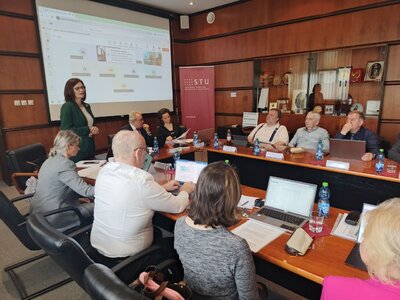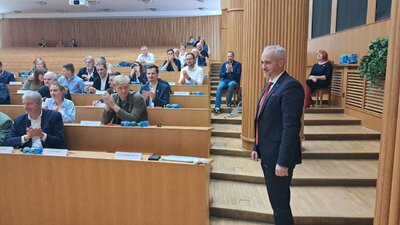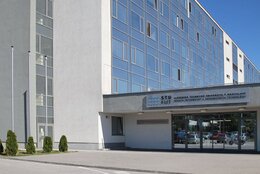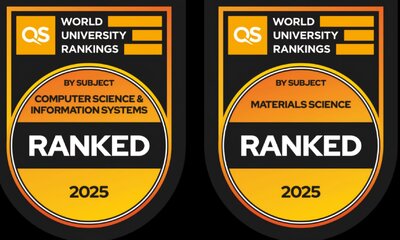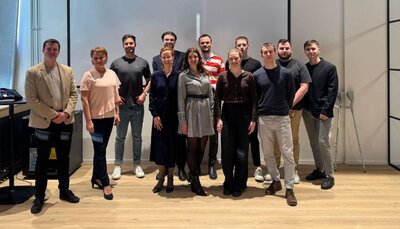The Slovak University of Technology in Bratislava starts closer cooperation with cities and regions. It will concern particular STU students, teachers and scientists’ projects based on the educational, commercial and grant principles. Memorandum of Understanding between STU and the Bratislava municipality of Vajnory was signed by Oliver Moravčík, the STU Rector and Michal Vlček, the Vajnory Mayor.
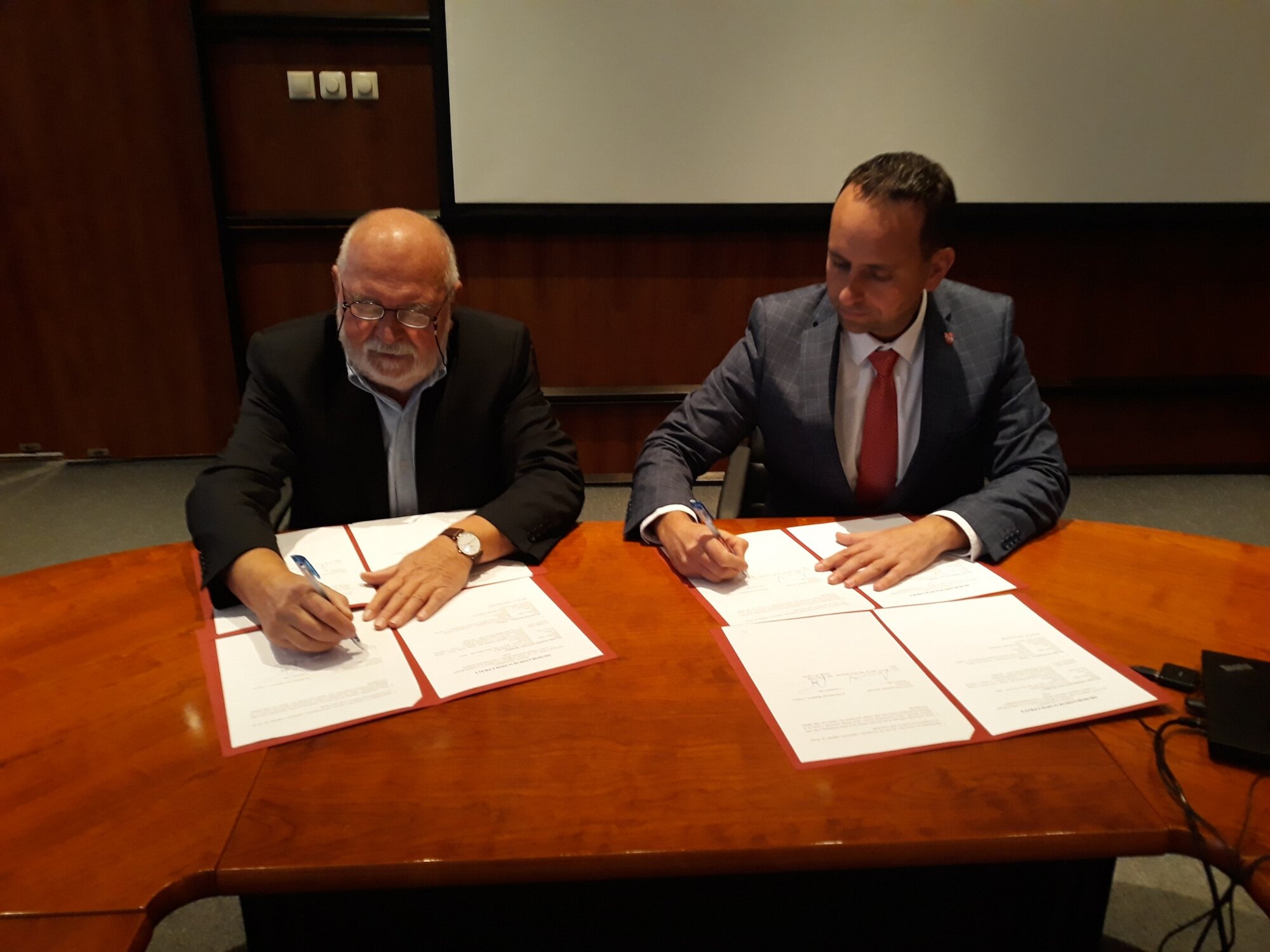
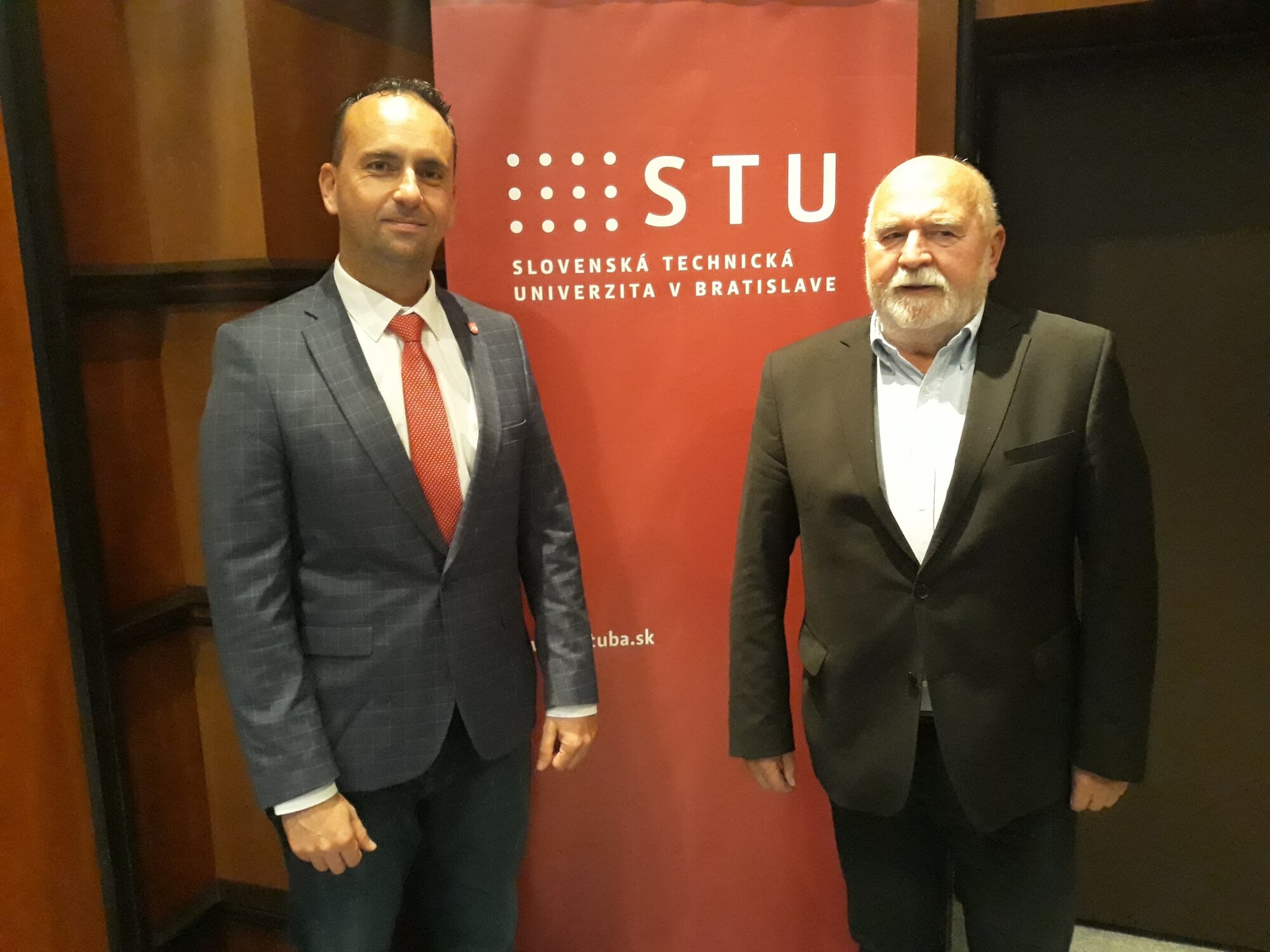
STU will strengthen cooperation with cities and regions, as common abroad at various levels, e.g. city in university projects, university in city projects, all based on the commercial, grant or student principles. "We believe that cooperation with cities, urban districts and regions will provide many options for implementing the innovations designed and elaborated in the STU students’ Master or Doctoral theses, or as outputs of the teachers and researchers’ projects, or the new projects within entrepreneurial activity of individual STU Faculties," explains Maximilián Strémy, the manager of the cooperation program, Vice-Rector for strategic projects, development, innovation and practice.
An example of the currently unused potential is an antibacterial bench developed at STU Faculty of Architecture and Design (STU FAD) for hospitals, which has not found practical application, although it is innovative and more affordable than many benches bought for our cities abroad. "The award-winning projects of our students should be presented in our cities as a priority," adds Vice-Rector Strémy.
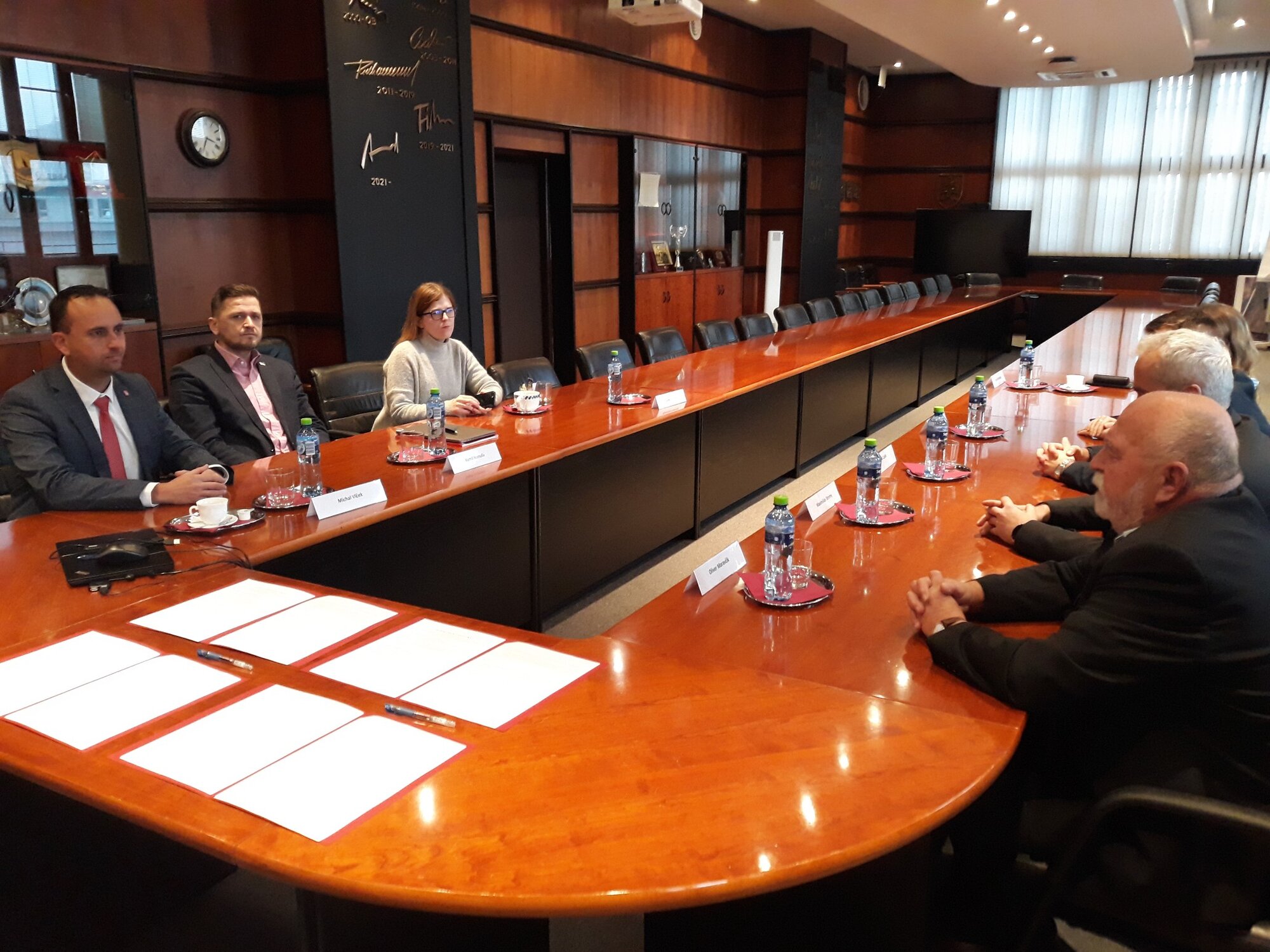
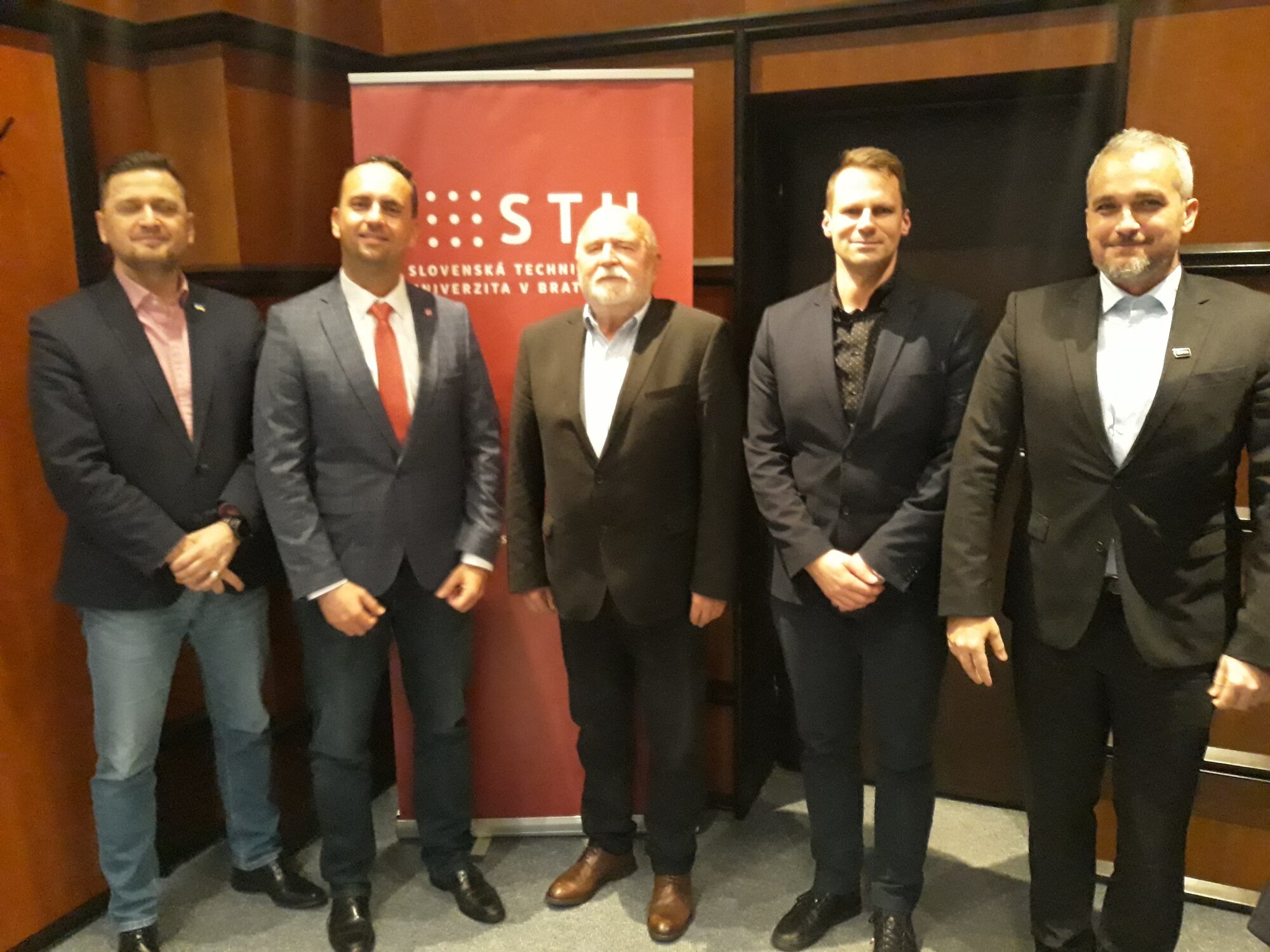
The Municipality of Vajnory, Bratislava the capital or the city of Trnava (Memorandum of Understanding with the latter two will be soon signed) are for now mainly attracted by the results of the STU architects, builders and the Institute of Management’s projects regarding energy sustainability, solar urbanism, water, sewerage reconstruction, innovative facades, project implementations, modifications to the territorial plans and many others. Individual examples include a proposal for the Public Transport Carrier System in Vajnory with a connection to Triblavina, elaborated in a Master thesis at the STU Faculty of Civil Engineering, along with the verification studies of housing development in selected localities of the Vrakuna Municipality (approx. 20 Bachelor theses by 3rd year students of the STU FAD), or the concept of sustainable development of the Vrakuňa Municipality with an emphasis on application of the blue-green infrastructure in its residential and rural areas (Master thesis elaborated at the STU FAD).
"So far, the approach was too individual. However, to achieve the goals, we need a coordinated and interdisciplinary approach as well as synergy of our faculties. In cooperation with Vajnory, the STU representatives have identified 20 topics that were assigned as the student projects/theses to become the starting points of commercial projects," says Vice-Rector Strémy.
"Cooperation has already started; the Memorandum represents a landmark that defines the framework of its development. We have already gained some experience, results and positive feedback from the citizens regarding the involvement of the academic community in the development of our Municipality," said Mayor Vlček.
The joint project can also bring about a secondary benefit for STU, cities and regions: such kind of cooperation is just projected in the foreign grant schemes concerning green topics and smart cities. Mutual effective communication may facilitate winning a foreign project like Horizon, adds Maximilián Strémy. Cooperation with university is a big advantage for cities, as it eliminates public procurement. "For University, the advantages of cooperation with cities are in educational sphere: students get the opportunity to design the proposals for real conditions, on the research-development and innovation basis, implemented in the real environment of cities and bringing a financial benefit. Recovery plans and foreign projects may follow," summarizes Vice-Rector Strémy.

